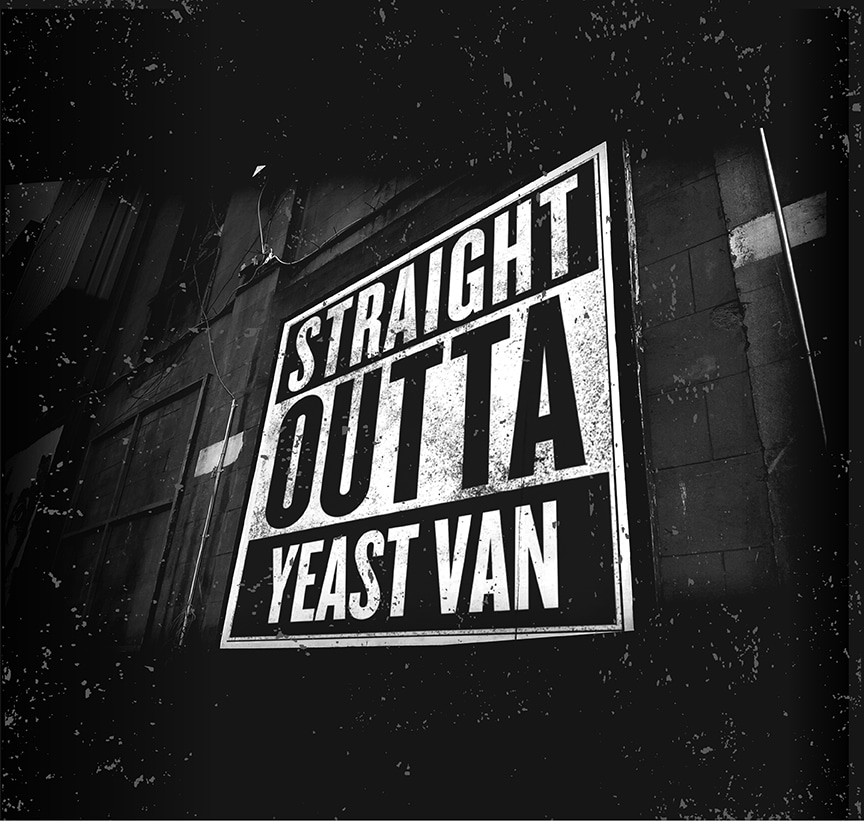
Lately, Graham Sherman might be best known nationally as the Calgarian brewer and co-founder of Tool Shed Brewing who “fired” a critical patron and beer writer.
But Sherman’s been making headlines, alongside his business partner Jeff Orr, since 2013, when the duo helped shape Alberta’s archaic brewing laws to make them more friendly for start-up craft brewers.
Prior to 2013, the Alberta Liquor and Gaming Commission’s Class C liquor policy stipulated that in order to open a brewery, business owners had to brew a minimum of 500,000 litres of beer, or 5,000 hectolitres.
That’s an enormous amount of beer for a start-up, and one that would require a sizeable brewing facility that would cost far more than the average brewing entrepreneur could put up. As a result, the brewing industry in Alberta was skeletal, with Big Rock and Wild Rose owning local craft beer sales. A few others cropped up, including Calgary’s Village Brewery, which was launched in 2011 by a collective of former Big Rock executives, with enough savvy and experience to launch a brewery to meet the minimum requirement.
Enter Sherman and Orr, who met while stationed in Kabul, Afghanistan, working for Network Innovations, specializing in government and military communications contracting. They were hyper-nerdy overachievers with high security clearance and a penchant for techno-gadgetry. They bonded over a love of coffee roasting.
They also spent months at a time isolated from their families back home in Calgary. When they landed back home after that first stint, they abandoned coffee roasting for homebrewing, making batches in Sherman’s back yard tool shed.
“Nobody gives a shit about coffee,” Sherman says now. “People came over and said ‘Yeah man, that’s some great espresso,’ but that’s as far as it went.
“[But] everything just culminates around the beer. Beer is the connector.”
Once they realized that, they decided to open a brewery together. Craft beer, they said, was coming to Calgary. They quit their stressful, isolating jobs and started making plans for Tool Shed Brewing in Fall 2012.
But – and that’s a huge but – they came up against the AGLC’s minimum brewing requirement. Sherman – about as high energy and obsessive a beer enthusiast as you’re likely to find – was perplexed.
“Why would this law exist?” he says. “It obviously had to have been from lobbying by big breweries not wanting to have any competition. What could be the reason for there to be a law that says you can’t get started without anything less than 5,000 hecs?”
He says they laid out their plans for the AGLC, showing them economic development case studies of breweries throughout Canada and the U.S., and what the agricultural and economic impact would be. But no – they couldn’t get a license.
“We saw this made absolutely no sense and we had to find something [a solution] in the meantime to pay our mortgages,” Sherman says.
So they took advantage of another AGLC policy that put no tariffs or restrictions on importing alcohol into Alberta. So while the AGLC made it as difficult as possible to make alcohol in the province, you could import as much of it as you like for anywhere in the world.
Sherman got a distribution license and sought contract brewers in B.C. They found it in Aldergrove’s Dead Frog Brewery, which agreed to put Tool Shed’s beer into production.
Orr moved out to the Fraser Valley to oversee operations. By September 2013, they were brewing beer in B.C. then shipping every batch back into Alberta to sell, all the while trying to raise enough money to build a brewery big enough to meet the minimum brew requirement.
“This was insane enough that it got lots of traction,” Sherman says, who pitched this story to just about every media outlet in the province.
Sherman and Orr weren’t alone in the fight. The Alberta Small Brewers Association had been lobbying to change the rules for years, and had even sued the AGLC to force the change. Fallentimber Meadery was also pushing for change at around the same time Tool Shed was.
“The former Class C policy was outdated and it didn’t reflect the best interests of the evolving liquor manufacturing sector in Alberta,” says Heather Holmen, spokesperson for the AGLC.
“It was time for a change.”
Holmen couldn’t confirm whether or not Tool Shed’s efforts were the catalyst – or even influential – in AGLC’s decision to update the policy, and said it launched its policy review in Fall 2012, which was around the time Tool Shed was getting started.
But people in the brewing industry credit Tool Shed, along with Fallentimber, for influencing the changes.
“Their efforts are definitely why we exist today,” says Derek Waghray, co-founder of Dandy Brewing, the second Calgary craft brewery to open up after the minimum brew policy had been eliminated.
“Our whole company was all about starting small, remaining full owners of our company and things like that. That was huge for us.”
The AGLC announced the new Class E policy on Dec. 5, 2013, eliminating the minimum production capacity requirements.
Sherman and Orr rushed to the head offices in St. Albert, and were the first to apply for a brewing license under the new policy. The AGLC tweeted out a photo of the two men, gleefully manhandling their application papers, with the caption: “We’re thinking the new Class E Liquor Manufacturing policies made Alberta’s craft beer brewers happy.”
In the end, Sherman and Orr ended up with a brewery much bigger than they had originally planned.
“The ironic part is, because we made so much noise and got so many people asking for our beer,” Sherman says, “we ended up building a brewery that was bigger than 5,000 hecs anyway.”




